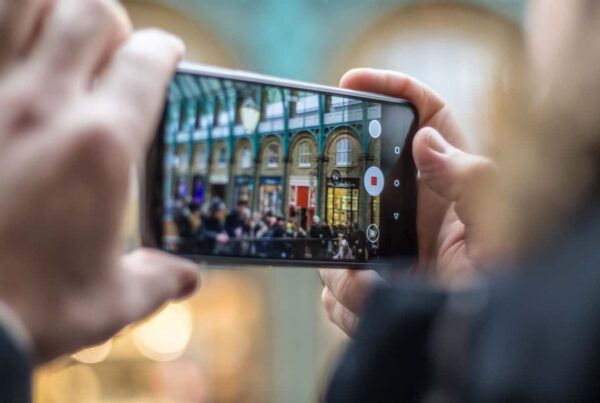Do we really want to mix communication and advertising ?
One of my biggest pet peeves when it comes to technology media coverage is how reporters always refer to Facebook as a “social media company”.
Actually, Facebook is a data mining company that camouflages as a social network. It makes money by running targeted ads.
“Senator, we run ads”
Companies big and small pay Facebook handsomely for bringing their content in front of a very specific set of users. Facebook has such gargantuan amounts of information over more than a billion people, that it can easily find – for example – a divorced man in his early fifties living in Dayton Ohio, who likes Stephen King novels and is interested in outdoor clothing.
Facebook’s entire revenue comes from advertising and micro-targeting.
In April 2018 Facebook (excuse me, Meta) CEO Mark Zuckerberg appeared before the Senate’s Commerce and Judiciary committees to discuss data privacy and Russian disinformation. 84-year-old Utah senator Orrin Hatch asked him: “So how do you sustain a business model in which users don’t pay for your services?” A smirking Mark Zuckerberg replied: “Senator, we run ads.”
In the winter of 2019 I was invited to do a screening of my film The Illusionists in Vancouver, Canada. While I was in town, I had the honor of interviewing Adbusters founder Kalle Lasn for my new documentary The Realists. Lasn had some brilliant insights regarding our current “social media” landscape. He said:
But I think there are bigger fish to fry, you know, if we really want to to to to stop this pernicious dysfunctional stuff that’s happening in our world and especially on the Internet. I think that we have to go deeper, and we have to start thinking about new business models. Like, do we really want to to have a Facebook? Do we really want to mix commercialism with communication? Do communication and advertising – especially surveillance-based advertising – do those two things really mix? If we’re going to create a society that really works, then then then maybe we have to come up with social marketing and social platforms that that don’t mix those two.
Most “social media” networks – I’m thinking about Facebook, Instagram, Snap, TikTok, Twitter – are less than 2 decades old. People – especially young adults – may spend hours on them every day. Human communication has become mediated by companies who make large profits from gathering huge amounts of data about their users and then selling access to them to third parties.
If you think about it this way – if you think for example of Instagram as a data mining company, does this change the way you share information on the app? Do you know that Instagram tracks how long you spend time reading a post, so that it can serve you similar posts (and similar ads)? Do you find this creepy or do you think it’s a good compromise for using a free service? Are you concerned that Instagram knows the exact GPS coordinates of your house? The model of your phone and its operating system?
According to a report by the European Digital Rights organization (EDRi):
These tracking tools (which include cookies, beacons and browser fingerprinting among others) are used to collect and, more importantly, combine data about people from across the web, different apps and even different devices. These are then used to make guesses about individuals’ interests and preferences. Trackers constantly observe users and their behaviour online. This can mean knowing the screen size of a particular user’s device and the software installed on it (which can in some cases be enough to identify individuals). It can also mean a user’s physical location, the apps installed on their device, browser settings, IP addresses, their topics of interest (politics, hobbies, sexual preferences, culture etc), how much time they spend on the website or platforms, the way they move their mouse, who they hang out with offline, the state of their mental health and much more.
Don’t call them “social media.” They are data mining companies that make money through targeted advertising
Sorry if you’re finding the tone of this post all about doom and gloom. I don’t mean to. I just wish to unmask the great illusion that Facebook, Instagram and TikTok are “social media” companies. They are not. Let’s start calling them what they are: data mining companies that make money through targeted advertising.
Are we willing to accept this compromise? Or are we better off avoiding them or limiting their use?
A recent Twitter thread (ah the irony!) by iGen author Jean Twenge caught my attention: “Almost 1 out of 4 teen girls had major depression in 2019 – double the rate of 2011. Depression increased for teen boys as well. And this was all pre-pandemic. It’s really unusual to see such a large change in mental health in such a short period of time – it suggests something fundamentally changed in teens’ lives after 2011. It did: They started spending much more time online, especially on social media, and less time in person.”
Where am I going with this? Well, maybe mixing communication with advertising is harming us in more ways than one. And maybe returning to real life, face to face communication, or communication not mediated by Big Tech, could have profound benefits for our well being and mental health.
Ask yourselves: is a company profiting from this activity?
When I was working on my documentary The Illusionists five years ago I was hyper-aware of commercial culture. I made an effort to seek out activities away from screens and advertising. I would ask myself: could a company track and profit from this activity? If the answer was “No”, I took it as a good sign. Going for a walk without my cell phone. Going to the library to pick out books. Going for a bike ride. Good, good, good. It felt like a very different world back then, but the principle is the same now. I’d venture to suggest this: seek out activities away from screens, Big Tech and surveillance capitalism. It will feel good – in the short and long run.







